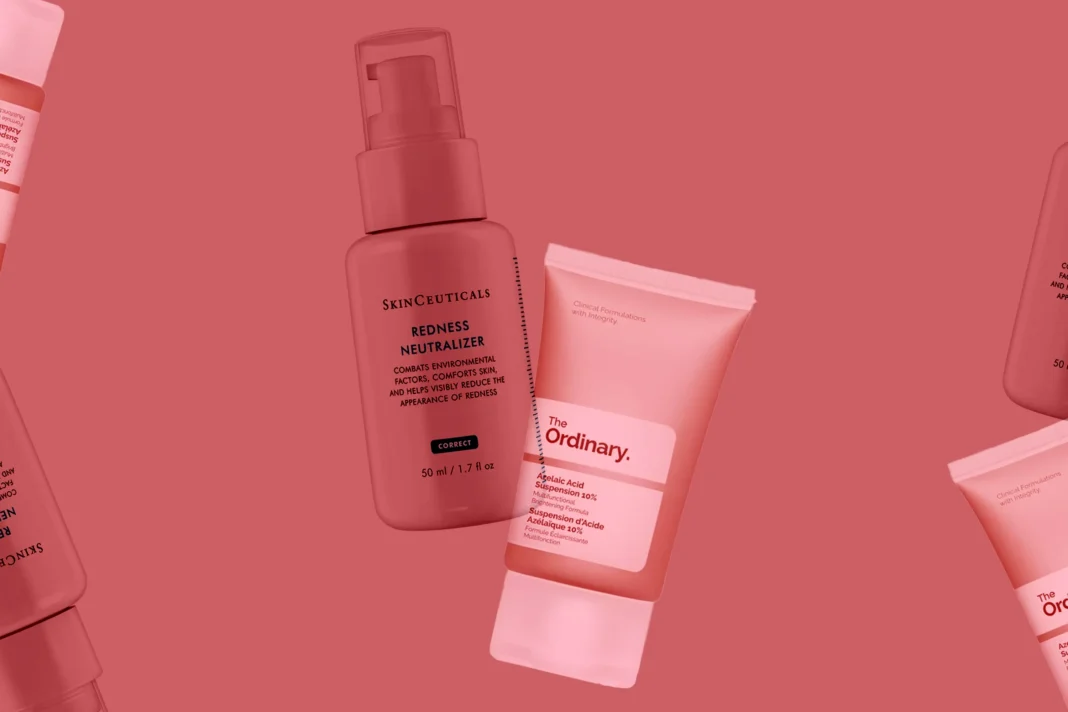Rosacea is a chronic skin condition that affects millions of people worldwide, often leading to redness, visible blood vessels, and acne-like breakouts. One of the most important steps in managing rosacea is choosing the right skincare products. Fragrance, whether natural or synthetic, can irritate sensitive skin and trigger flare-ups. That’s why fragrance-free skincare products are essential for anyone with rosacea.
This guide explores the best fragrance-free skincare options for rosacea, including how to build a gentle routine and what ingredients to look for (and avoid). Whether you’re newly diagnosed or have been dealing with rosacea for years, this article will help you choose products that soothe rather than aggravate your skin.
Why Fragrance-Free Products Matter for Rosacea
Fragrance is one of the most common causes of skin irritation, even in people without pre-existing conditions. For those with rosacea, fragrance can significantly worsen redness, dryness, and sensitivity. Even so-called “natural” fragrances like essential oils can be harsh on inflamed skin.
Fragrance-free means the product contains no added fragrance ingredients. This is different from unscented, which may still include masking agents to cover up smells. Always check product labels for terms like “fragrance-free” or “no added fragrance.”
Ideal Skincare Routine for Rosacea-Prone Skin
Creating a basic skincare routine using fragrance-free products can help control rosacea symptoms. Here’s a simple three-step guide:
| Step | Product Type | What to Look For | What to Avoid |
|---|---|---|---|
| 1 | Cleanser | Gentle, sulfate-free, non-foaming | Alcohol, menthol, exfoliating acids |
| 2 | Moisturizer | Ceramides, niacinamide, hyaluronic acid | Fragrance, dyes, essential oils |
| 3 | Sunscreen | Mineral-based (zinc oxide or titanium dioxide) | Chemical filters (oxybenzone, avobenzone) |
Optional:
If you are dealing with post-inflammatory hyperpigmentation from rosacea flare-ups, you can include a serum with stabilized Vitamin C. Choose products labeled as suitable for sensitive or rosacea-prone skin. One great option that fits this requirement is the Best Vitamin C Serum for Hyperpigmentation, which is often formulated without fragrance or irritants.
Ingredients That Help Soothe Rosacea
When looking for fragrance-free skincare products, these ingredients can offer calming, anti-inflammatory, or hydrating benefits:
- Niacinamide: Reduces redness and strengthens the skin barrier
- Ceramides: Restore and protect the skin’s natural moisture
- Aloe Vera: Offers soothing properties without heavy oils
- Green Tea Extract: Contains antioxidants that may calm inflammation
- Zinc Oxide: Acts as a physical sunblock and soothes irritation
- Colloidal Oatmeal: Soothes dry, itchy, or irritated skin
These ingredients should be high on the list of your product’s ingredient panel, and ideally paired with a short, simple formula.
Common Triggers to Avoid in Rosacea Skincare
Understanding what not to use is just as important as knowing what to use. Here are common irritants found in skincare that can trigger rosacea symptoms:
- Fragrance (both natural and synthetic)
- Essential oils (lavender, peppermint, citrus, etc.)
- Alcohol (denatured, SD alcohol, ethanol)
- Menthol or camphor
- Harsh exfoliants (scrubs, glycolic acid, salicylic acid)
- Sodium lauryl sulfate (SLS)
These ingredients can disrupt your skin’s barrier, increase inflammation, or trigger unwanted reactions.
Top Fragrance-Free Product Categories for Rosacea
Here’s a quick breakdown of essential fragrance-free products to include in your rosacea skincare regimen:
1. Gentle Cleanser
Look for a hydrating, non-foaming cleanser designed for sensitive skin. Avoid scrubs or exfoliating cleansers.
2. Soothing Moisturizer
Choose a cream-based moisturizer rich in ceramides, glycerin, and niacinamide. This will help reduce moisture loss and redness.
3. Mineral Sunscreen
Sun exposure is a major trigger for rosacea. Use a zinc oxide-based sunscreen that’s labeled “fragrance-free” and suitable for sensitive skin.
4. Serum (Optional)
If targeting dark spots or uneven skin tone, a Vitamin C serum may be added. Always patch test before using.
Tips for Choosing Fragrance-Free Products
- Always Read the Label: Look for “fragrance-free,” not just “unscented.”
- Do a Patch Test: Test new products on a small patch of skin to ensure there’s no reaction.
- Keep It Simple: The fewer ingredients, the better. Stick to basics.
- Avoid Over-Treating: Too many actives or frequent product changes can stress your skin.
Frequently Asked Questions (FAQs)
Q1: Are all fragrance-free products safe for rosacea?
No, not all fragrance-free products are automatically safe. Some may still contain other irritants like alcohol or essential oils. Always check the full ingredient list.
Q2: Can I use anti-aging products if I have rosacea?
Yes, but choose products specifically formulated for sensitive skin. Retinoids or acids should be introduced gradually and under dermatologist guidance.
Q3: Is it okay to wear makeup with rosacea?
Yes, but choose non-comedogenic, fragrance-free makeup labeled for sensitive skin. Mineral makeup is often a good option.
Q4: How can I tell if a product is irritating my rosacea?
Look for signs such as increased redness, burning, stinging, or dryness. If symptoms worsen after using a new product, discontinue use immediately.
Q5: How often should I wash my face if I have rosacea?
Twice daily—morning and night—is typically ideal. Avoid overwashing or using hot water, which can aggravate rosacea.
Final Thoughts
Rosacea requires gentle, consistent care—and fragrance-free skincare products are a critical part of managing it. By choosing the right cleanser, moisturizer, and sunscreen, and by avoiding known triggers like fragrance and alcohol, you can significantly reduce flare-ups and maintain a healthier complexion.
If you’re looking to target specific concerns like dark spots from past breakouts, the Best Vitamin C Serum for Hyperpigmentation is a worthwhile addition—as long as it’s formulated without fragrance and tested for sensitive skin.
Consistency is key. Stick to products that are designed with your skin’s sensitivities in mind, and don’t be tempted by trendy ingredients unless you’re sure they’re safe for rosacea-prone skin.


